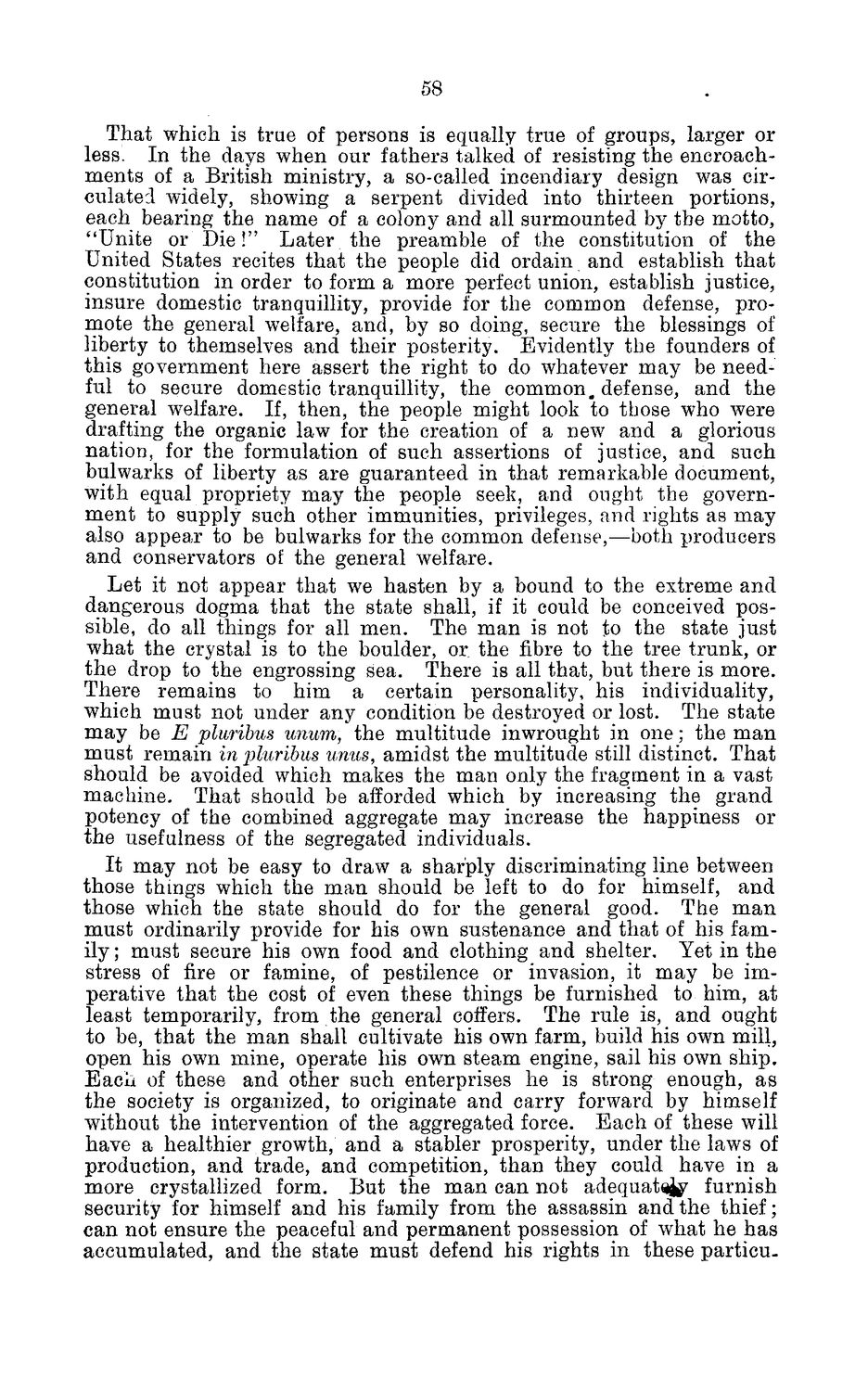| |
| |
Caption: Board of Trustees Minutes - 1884
This is a reduced-resolution page image for fast online browsing.

EXTRACTED TEXT FROM PAGE:
58 That which is true of persons is equally true of groups, larger or less. In the days when our fathers talked of resisting the encroachments of a British ministry, a so-called incendiary design was circulated widely, showing a serpent divided into thirteen portions, each bearing the name of a colony and all surmounted by the motto, "Unite or Die!" Later the preamble of the constitution of the United States recites that the people did ordain and establish that constitution in order to form a more perfect union, establish justice, insure domestic tranquillity, provide for the common defense, promote the general welfare, and, by so doing, secure the blessings of liberty to themselves and their posterity. Evidently the founders of this government here assert the right to do whatever may be needful to secure domestic tranquillity, the common, defense, and the general welfare. If, then, the people might look to those who were drafting the organic law for the creation of a new and a glorious nation, for the formulation of such assertions of justice, and such bulwarks of liberty as are guaranteed in that remarkable document, with equal propriety may the people seek, and ought the government to supply such other immunities, privileges, and rights as may also appear to be bulwarks for the common defense,—both producers and conservators of the general welfare. Let it not appear that we hasten by a bound to the extreme and dangerous dogma that the state shall, if it could be conceived possible, do all things for all men. The man is not to the state just what the crystal is to the boulder, or the fibre to the tree trunk, or the drop to the engrossing sea. There is all that, but there is more. There remains to him a certain personality, his individuality, which must not under any condition be destroyed or lost. The state may be E pluribus unum, the multitude inwrought in one; the man must remain in pluribus units, amidst the multitude still distinct. That should be avoided which makes the man only the fragment in a vast machine. That should be afforded which by increasing the grand potency of the combined aggregate may increase the happiness or the usefulness of the segregated individuals. It may not be easy to draw a sharply discriminating line between those things which the man should be left to do for himself, and those which the state should do for the general good. The man must ordinarily provide for his own sustenance and that of his family ; must secure his own food and clothing and shelter. Yet in the stress of fire or famine, of pestilence or invasion, it may be imperative that the cost of even these things be furnished to him, at least temporarily, from the general coffers. The rule is, and ought to be, that the man shall cultivate his own farm, build his own mill, open his own mine, operate his own steam engine, sail his own ship. Each of these and other such enterprises he is strong enough, as the society is organized, to originate and carry forward by himself without the intervention of the aggregated force. Each of these will have a healthier growth, and a stabler prosperity, under the laws of production, and trade, and competition, than they could have in a more crystallized form. But the man can not a d e q u a t e furnish security for himself and his family from the assassin and the thief; can not ensure the peaceful and permanent possession of what he has accumulated, and the state must defend his rights in these particu.
| |